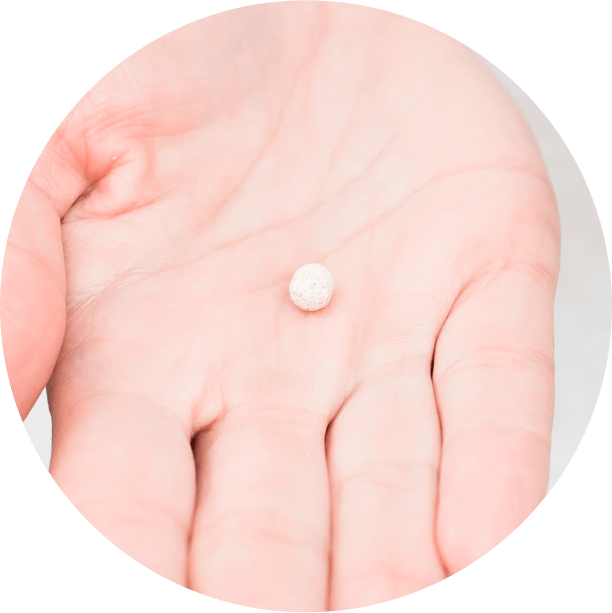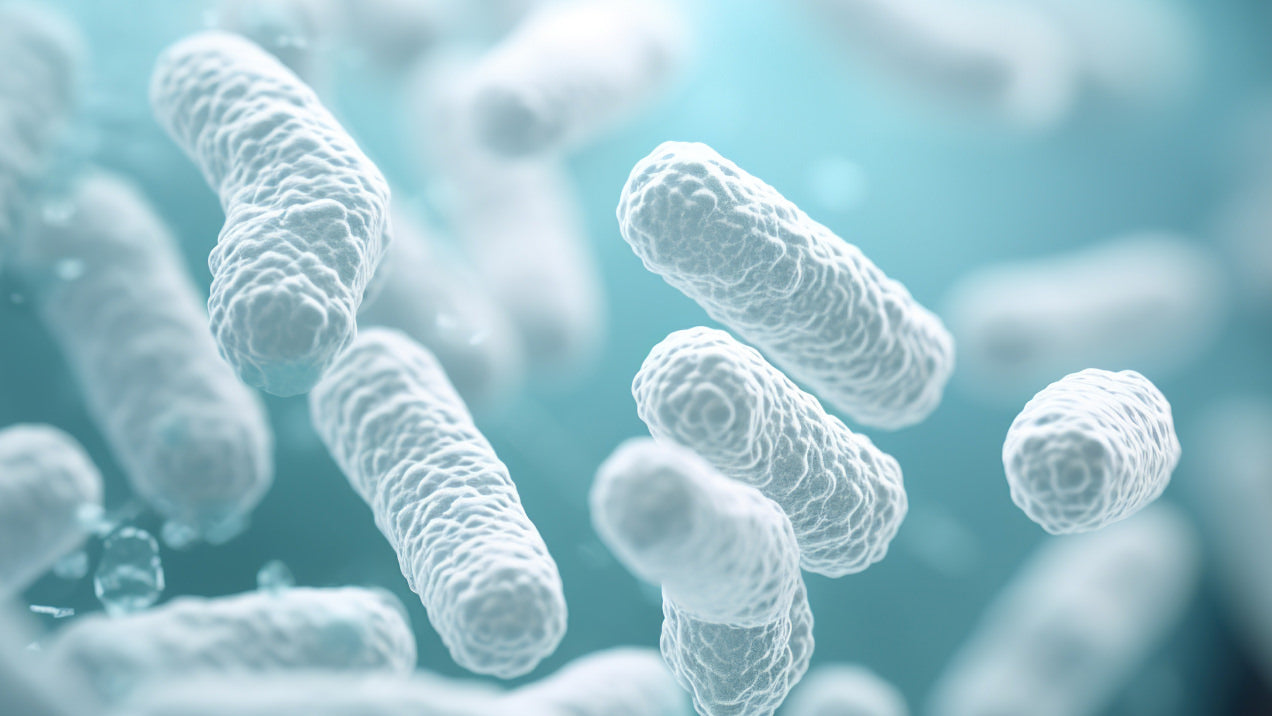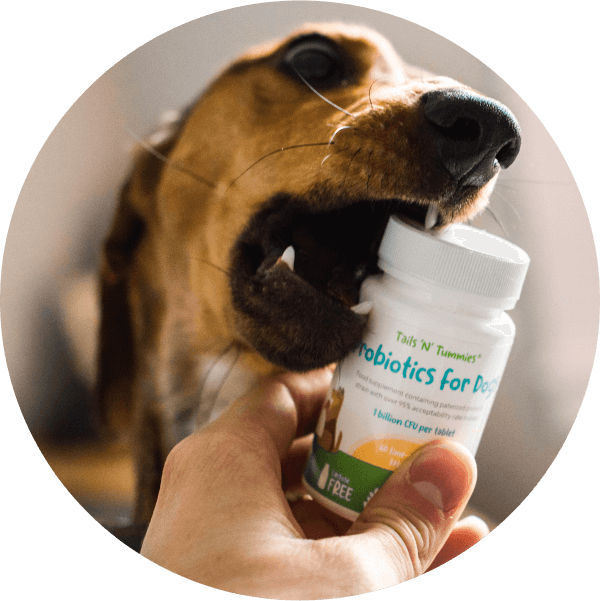Restoring Balance: How Probiotics Help Dogs on Antibiotics
Learn the importance of probiotics for dogs on antibiotics: restoring gut balance, countering side effects, bolstering immunity. Get tips for safe introduction, enhancing canine health.

Highlights
- Antibiotics kill both harmful and beneficial bacteria, disrupting a dog's gut health.
- Probiotics replenish good bacteria, improving gut health and supporting the immune system.
- They help reduce antibiotic-associated diarrhea and elevate mood through neurotransmitter regulation.
- Probiotics can be administered via supplements or probiotic-rich foods for gut flora balance.
- The disruption and subsequent restoration of gut health significantly impact overall well-being, influencing digestion, immunity, and behavior in dogs.
Ah, the gut - the epicenter of health and well-being. It's where everything from digestion to mood regulation happens. And just like any bustling metropolis, our gut is teeming with diverse microbial communities - some good, some bad.But what happens when our gut health goes awry? That’s where our story begins.Picture it: Your pup’s digestive health has been destroyed by a course of antibiotics, their gut is a desolate wasteland, and we’re all desperate for a hero who will come in to save the day.Ready? Lights, camera, action in 3… 2… 1…

The Impact of Antibiotics on Dogs
Antibiotics serve a divine purpose for our four-legged friends: to fight off infection and keep sickness at bay. With their help, dogs can recover more quickly from illness and lead healthier lives. But there’s one flaw with antibiotics that’s pretty hard to overlook:
Antibiotics destroy your dog's gut health.
Think of antibiotics as if they were microscopic military drones, and their assigned mission was to enter the battlefield that is your dog’s body. To ward off potential infection, these drones are programmed to seek and destroy all bacteria in their path.
The problem, of course, is that these drones (antibiotics) have no way of distinguishing between “good” and “bad” bacteria, so to be safe, they destroy all bacteria in sight. And while this may be a very efficient way to stop infection in its tracks, this action can wreak havoc on your dog’s digestive health.
Consequences of Antibiotics On Gut Health and How Probiotics Can Help
As an antibiotic makes its way through your dog’s body, it leaves a path of destruction in its wake. The delicate microbiota of your dog’s gut is discombobulated, which can lead to all kinds of secondary problems.
Let’s take a closer look at the consequences of antibiotics on a dog’s gut health.
Gut Health
It's wild to think about, but your dog’s intestines are home to a whole ecosystem of bacteria and microorganisms. This community is often referred to as the gut microbiome, and they play a vital role in digestion, immune system function, and overall health.
As with most ecosystems, the gut microbiome is incredibly delicate and very sensitive to any sort of change. So when an aggressive agent (like an antibiotic) comes into town, it can quickly throw the whole system into turmoil, leaving your pet to suffer the consequences.
When your dog’s gut microbiome is out of balance, he may experience any one of the following symptoms:

Fortunately, there’s a hero lurking in the background who will soon join our story: Probiotics.
But before we get into all that, let’s talk a little bit more about the effect of antibiotics on your dog’s bowel movements, and what signs to look for when you suspect something’s not quite right.
Antibiotic-Associated Diarrhea
As we’ve stated before on this blog, much of what we know about pet health stems from research involving humans. So let’s take a look at what science has to tell us about antibiotic-associated diarrhea.
According to the Mayo Clinic, approximately 1 in 5 people who take antibiotics will develop antibiotic-associated diarrhea. Research indicates that this is likely caused by disruption of the intestinal flora in response to the presence of an antibiotic.
The subjects of the aforementioned study indicated that diarrhea occurred within just one week of taking an antibiotic though, fortunately, most cases cleared up on their own without warranting further treatment.
Antibiotic-associated diarrhea can happen to anyone, but it’s much more likely to occur in those who:
So what does this mean for your pet? Well, if your pup is taking antibiotics and they suddenly start having loose stools or diarrhea, it’s probably related!
Weak Immune System
As you can see, antibiotics can have a pretty negative impact on a dog’s gut health, but that’s not the only system that will suffer the consequences of this attack!
Antibiotics can also cause serious damage to your dog’s immune system.
How, you might ask? Well, let us break it down for you.
As we’ve learned, when antibiotics enter the body, they don’t just target the “bad” bacteria causing infection - they also kill the “good” bacteria that help keep your dog’s immune system functioning in tip-top shape.
These “good” bacteria serve a lot of different purposes; one of which is to act as a protective barrier for your dog’s gut, preventing harmful microbes from taking over and making your pup sick.

But when antibiotics show up and wipe them out, your dog’s immune system is left just as vulnerable as a young kid without his safety blanket.
Infections
Additionally, overuse of antibiotics can actually cause yeast infections, as well as lead to drug-resistant bacteria that are tougher than a chew toy made out of titanium. When your dog’s immune system is weakened, these superbugs can wreak havoc on their body, causing even more health problems.
In fact, some infections caused by drug-resistant bacteria can even be fatal!

Allergic Reactions

Just like humans, our furry friends can also develop allergic reactions to certain antibiotics, leading to a variety of symptoms ranging from mild skin rashes to severe anaphylactic shock.
But what causes this type of allergy, you might ask? It’s simple!
Antibiotics, though helpful in fighting off infections, are made up of all different chemical components that some dogs’ immune systems may deem as foreign invaders.
To fight off this unfamiliar substance, your dog’s immune system will trigger an allergic reaction, which can lead to a plethora of uncomfortable symptoms.
Symptoms of antibiotic allergies in dogs can vary from mild to severe, depending on the severity of the reaction. Mild symptoms may include:
While severe symptoms can lead to vomiting, diarrhea, breathing difficulties, and in rare cases, anaphylactic shock - a potentially life-threatening condition.
Some common antibiotics that may cause allergies include:
Behavior Changes
As you can see, antibiotics can have a pretty significant impact on a dog’s gut health, immune system, and more. But that’s not all!
Antibiotics can also have a negative impact on your dog’s mood and behavior.
Let’s take a closer look at why this happens.
As we know, antibiotics are designed to kill off harmful bacteria in the body. But unfortunately, they can also kill off some of the good bacteria that live in our pup's gut - you know, the ones that help with digestion and keep everything running smoothly.
Without enough of these “good” bacteria present, our four-legged friends can start to feel lethargic and may also develop tummy troubles. As a result, they may become more agitated or irritable, which is no fun for anyone involved.
These side effects can be even more pronounced for dogs already dealing with an existing health problem.
Restoring Gut Health with Probiotics
Now to introduce the hero of today’s story - you guessed it, probiotics!
Probiotics are the good guys - the Robin Hoods of the gut world. They help restore balance by increasing the number of good bacteria in your dog's gut, thereby enhancing overall gut health.
This tiny but mighty army of microorganisms not only improves digestive function by breaking down food and absorbing nutrients, but they also play a crucial role in modulating the immune system.
In essence, probiotics are the first line of defense for your pup’s digestive system. But when an antibiotic enters your dog’s body on a mission to seek and destroy, these microorganisms will be killed, leaving the gut defenseless against other potential invaders.
Thus, it is essential for us to replace these fallen soldiers before any more damage occurs.
Research shows that probiotics can help reduce the risk of infections and other illnesses by stimulating the body's natural defense mechanisms. They can even lift your dog's mood by regulating neurotransmitters that are responsible for mood and behavior.

So, apart from being the de facto immune system defenders, probiotics can also help keep Fido’s spirits high. But wait, there's more!
Probiotics can also help prevent future infections by restoring the “good” bacteria that were lost during antibiotic treatments.
Additionally, by promoting the presence of beneficial microorganisms, probiotics can help reduce the risk of antibiotic-associated diarrhea, among other unpleasant side effects that come with antibiotic use.
But what about those dogs who have to take antibiotics long-term? Can probiotics help with that, too?
Let’s find out.
Find out more about how probiotics reduce the risk of infections in this .
Long-Term Antibiotic Use
When you give your dog antibiotics over a prolonged period of time, the “bad” bacteria that the antibiotic should be targeting may become resistant, while the “good” bacteria gets wiped out.
Then, your dog's gut microbiome, or the collection of microorganisms that live there, becomes imbalanced, leading to digestive distress and other such problems.
Not only that, but antibiotics can also put a strain on your dog's liver and kidneys, as these organs are responsible for metabolizing and eliminating the chemicals in your dog’s medication. In some cases, long-term use can damage these vital organs, leading to chronic health issues.
Plus, as we know, antibiotics may disrupt your dog's immune system, which could make them more susceptible to infections and illnesses in the long run.
And that’s not even to mention the potential side effects that your pup may experience during antibiotic treatment, such as vomiting, abdominal pain, and diarrhea.

Long-term use of antibiotics is like playing a bad game of "would you rather": Would you rather put up with a little sniffle, or spend your days hunched over with stomach cramps?
Dysbiosis
Long-term antibiotic use can also contribute to a harmful condition known as Dysbiosis - the “bad boy” in the world of gut health.
When a dog takes antibiotics, these drugs don't just target the “bad” bacteria causing an infection - they also wipe out the “good” bacteria in their gut. It's like a nuclear bomb. And just like with any war, there are casualties on both sides.
So, what are the consequences of this gut microbiome massacre? Well, here's where it gets interesting.
Dysbiosis can lead to a whole host of issues, from mild digestive problems like diarrhea and vomiting to more serious conditions like colitis, food intolerances, and even behavioral changes. But fear not, fellow dog enthusiasts, for there are ways to prevent antibiotic-induced dysbiosis.
The key is to use antibiotics only when necessary, and to supplement with probiotics to replenish the “good” bacteria in your dog’s gut.

It's like rebuilding a city after a natural disaster - in order to repair the damage caused by this nuclear event (antibiotics), you have to bring in the construction workers (probiotics) to rebuild.
The Science Behind Giving Probiotics To Dogs on Antibiotics

Studies have shown that supplementing your dog’s diet with probiotics can help maintain a healthy gut microbiome despite antibiotics doing their dirty work.
But don't just take our word for it! Let’s take a look at what the experts have to say.
According to the Veterinary Information Network, “Antibiotic treatment results in dramatic changes in gut microbiota composition and in some patients this can develop into a more chronic intestinal dysbiosis. Probiotics support restoration of the commensal flora.”
Meanwhile, MDPI published the results of a meta-analysis of 17 randomized controlled trials (RCTs), which found that probiotics can be useful in the prevention of antibiotic-associated diarrhea in outpatients taking oral antibiotics, with an overall relative risk reduction of 0.46.
Additionally, an article published by Today’s Veterinary Practice states that “the most promising applications for probiotics are treatment of acute uncomplicated diarrhea, prevention of stress diarrhea, prevention of antibiotic-associated GI signs, and adjunct therapy for chronic enteropathies.”
Meanwhile, MDPI published the results of a meta-analysis of 17 randomized controlled trials (RCTs), which found that probiotics can be useful in the prevention of antibiotic-associated diarrhea in outpatients taking oral antibiotics, with an overall relative risk reduction of 0.46.
Want to learn more about how probiotics can help your pup while on antibiotics? Read more about the MDPI Study and how probiotics can help prevent antibiotic-associated diarrhea.
Tips for Administering Probiotics to Dogs on Antibiotics
There are currently two known and acceptable ways to give your dog his daily dose of probiotic goodness: supplements and probiotic-friendly foods.
Probiotic Supplements

First up, we have the maximalist's dream: probiotic supplements. These puppies (pun intended) are absolutely loaded with the good stuff, including a high concentration of “good” bacteria that ensures your dog is getting a therapeutic dose each and every time.
At Tails N’ Tummies, the main ingredient of our probiotic supplement is an innovative, “good” bacterial strain known as Lactobacillus Plantarum. Jam-packed with over one billion CFU’s (live microorganisms) per unit and boasting a delicious pork flavor, you can’t go wrong with this one!
Probiotics can also help replenish the “good” bacteria in your pup’s gut after completing a course of antibiotics!
Probiotics and antibiotics can safely be given at the same time, though experts do recommend waiting 1-2 hours after giving the antibiotic to administer your pup’s probiotic supplement. So if you give the antibiotic at 8AM, best practice dictates waiting until 9 or 10 AM to give the probiotic.
Probiotic-Friendly Foods
But wait, hold on to your leashes! There are also many food-based alternatives for your pup's probiotic needs. If you prefer a more minimalistic, natural approach, try selecting foods that are already naturally rich in probiotics, such as:
Disease
But if you choose this route, just don't be surprised when your dog starts begging for Kombucha and Kefir like a hipster at a health food store!
FAQs About How Probiotics Help Dogs on Antibiotics
In Conclusion
Antibiotics are one of those necessary evils - the benefits are undeniable, but so is the destruction that’s left in their wake.
Fortunately, good outweighs evil in this story (as it always does) thanks to our hero: Probiotics.
Happy tummies make for happier pups, so to learn more about the innumerable benefits of probiotics or to place an order online.
